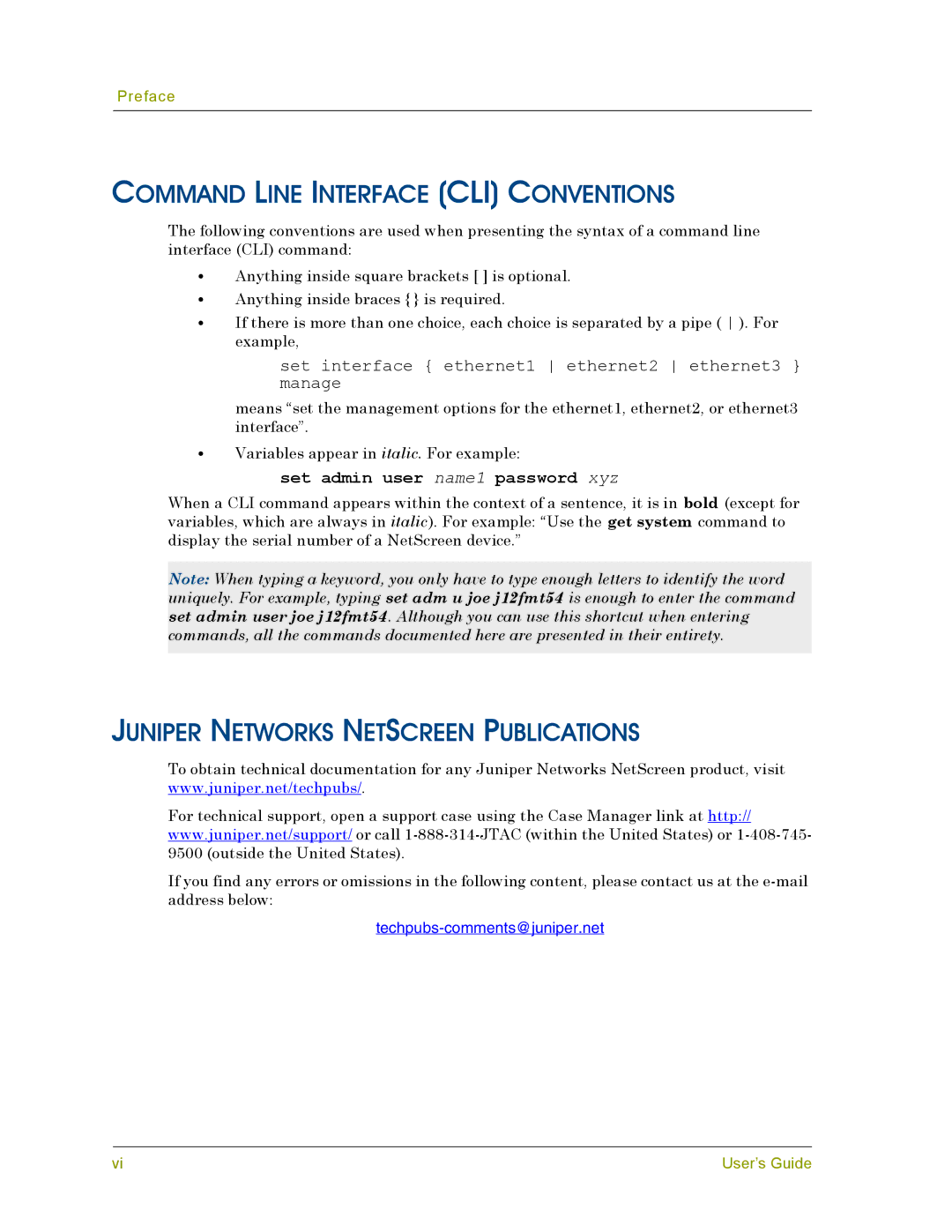
Preface
COMMAND LINE INTERFACE (CLI) CONVENTIONS
The following conventions are used when presenting the syntax of a command line interface (CLI) command:
•Anything inside square brackets [ ] is optional.
•Anything inside braces { } is required.
•If there is more than one choice, each choice is separated by a pipe ( ). For example,
set interface { ethernet1 ethernet2 ethernet3 } manage
means “set the management options for the ethernet1, ethernet2, or ethernet3 interface”.
•Variables appear in italic. For example:
set admin user name1 password xyz
When a CLI command appears within the context of a sentence, it is in bold (except for variables, which are always in italic). For example: “Use the get system command to display the serial number of a NetScreen device.”
Note: When typing a keyword, you only have to type enough letters to identify the word uniquely. For example, typing set adm u joe j12fmt54 is enough to enter the command set admin user joe j12fmt54. Although you can use this shortcut when entering commands, all the commands documented here are presented in their entirety.
JUNIPER NETWORKS NETSCREEN PUBLICATIONS
To obtain technical documentation for any Juniper Networks NetScreen product, visit www.juniper.net/techpubs/.
For technical support, open a support case using the Case Manager link at http:// www.juniper.net/support/ or call
If you find any errors or omissions in the following content, please contact us at the
vi | User’s Guide |
